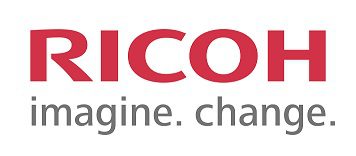Ricoh is Opening Doors to disadvantaged talent

Ricoh is a leading digital services company. A longstanding advocate of inclusive recruitment, it was one of the first employers to sign up to Business in the Community’s (BITC) Opening Doors campaign, which calls on employers to take action across five keys of inclusive recruitment:
- Create partnerships that connect untapped talent to your jobs
- Show candidates that you are committed to inclusion
- Use comprehensive job adverts with inclusive language
- Focus on the essential skills needed to do the job
- Prioritise accessibility and eliminate bias
Ricoh has committed to taking forward 14 actions over the next three years, but just six months into its inclusive recruitment journey, it has already made good progress towards some of them.
What actions is Ricoh taking as an Opening Doors employer?
Use comprehensive job adverts with inclusive language:
- Use neutral language
- Provide information about relevant HR policies, e.g., flexible working or the recruitment of people with convictions.
All Ricoh’s job adverts and job descriptions go through a gender decoder to remove potentially biased language; examples of some of the changes made include swapping ‘managing’ to ‘leading’ and ‘driving’ to ‘collaborating’. Ricoh has added the sentence ‘we are happy to talk about flexible working’ to every job advert.
“Since we introduced these changes, we’ve seen a rise in the proportion of applications from women: up from 22% to 33%”, explains Catherine Morrell, Inclusion and Wellbeing Manager at Ricoh. “Anecdotally, hiring managers are reporting that more interviewees want to talk about flexible working options. They aren’t necessarily asking whether they can work flexibly now, but rather want to know that the option will exist in the future – which suggests that they may be viewing flexibility as an indicator of Ricoh’s culture.”
- Collect diversity data at the application stage to ensure that you can identify any potential barriers for diverse candidates.
Ricoh knows that without data, it is challenging to identify which parts of the recruitment process are causing problems for particular groups of job seekers.
“The absence of robust data was a key challenge for us “but we’ve worked hard to overcome that, and we are now able to get diversity data for every stage of the application, with 82% of applicants providing data.“
Since committing to collect diversity data as part of the Opening Doors campaign, Ricoh has seen the benefits. For example, data has helped Ricoh to understand better why more males than females were being recruited into the business. Diversity data helped to pinpoint that although women were applying for roles, they were less likely to continue with their application after the interview stage.
Show candidates that you are committed to inclusion:
- Provide training on inclusive recruitment and ensure your employees understand your commitment to inclusive recruitment
Armed with diversity data that identifies potential blockers in the recruitment process, Ricoh can have open and honest conversations with its hiring managers about the best way to adhere to the employer’s inclusive recruitment principles. “Now that we have the data,” says Catherine, “we can work with managers to challenge assumptions about whether a candidate would be a good ‘culture add’ for the organisation. It’s too early to be able to report impact yet, but we certainly believe that we’re moving in the right direction”.
We’ve also developed our Employee Value Proposition to give all potential candidates a flavour of what it’s like to work at Ricoh from real-life employees. This way, candidates can identify with one of the people’s stories and be encouraged to apply for a job they might otherwise think is not for them.
Related content
Overcoming ageism in the workforce through Job Coaching
Read Erica's experience with Business in the Community's Job Coaching programme.
Phoenix is Opening Doors to More Diverse Talent
How Phoenix has embraced the Opening Doors campaign calls to action and the difference this has made.
Better Through Total Collaboration Creates a Lasting Legacy
How Business in the Community’s (BITC) Job Coaching Programme has played an integral part in helping Better Through Total Collaboration (BTTC) achieve its goals.
